the Prohibition on the Purchase of Residential Property by Non-Canadians Act
Effective January 1, 2023, the Prohibition on the Purchase of Residential Property by Non-Canadians Act came into effect. This act prohibits non-Canadians from purchasing a residential home in Canada for the next 2 years. On February 4, 2024, the Finance Minister and Deputy Prime Minister announced a 2-year extension to the ban extending it to January 1, 2027. Properties that are exempt from the act are: buildings containing more than 3 dwellings and recreational properties. Non-Canadians can purchase residential properties located outside of Census Metropolitan Areas (CMA) and Census Agglomerations (CA).
The Act applies to non-Canadians, including corporations and entities not listed on a stock exchange in Canada, and controlled by non-Canadians.
It doesn’t apply to Canadians, permanent residents, or temporary residents who meet the exception criteria outlined in the Regulations as outlined below:
Exceptions Contained in the Act and Regulations
-
are enrolled in a program of authorized study at a designated learning institution as defined in the Immigration and Refugee Protection Regulations, and
have filed income tax returns for each of the 5 taxation years preceding the year in which the purchase was made, and
have been physically present in Canada for a minimum of 244 days in each of the 5 calendar years preceding the year in which the purchase was made, and
have not previously purchased a residential property in Canada while the prohibition is in effect, and
purchase a property for a price not exceeding $500,000.
-
hold a valid work permit or are authorized to work in Canada, and
have 183 days or more of validity remaining on their work permit or work authorization at time of purchase, and
have not previously purchased a residential property in Canada while the prohibition is in effect.
-
have been given refugee protection or are a protected person under the Immigration and Refugee Protection Act
-
have made a claim for refugee protection in accordance with the Immigration and Refugee Protection Act, if that claim has been found eligible and referred to the Refugee Protection Division; or
have received temporary resident status in accordance with the Immigration and Refugee Protection Act based on humanitarian public policy considerations to provide a safe haven to those fleeing conflict
-
hold a passport that has a valid diplomatic, consular, official, or special representative acceptance issued by the Chief of Protocol of Canada
-
purchase residential property in Canada with their spouse or common-law partner who is a Canadian citizen, a person registered under the Indian Act, a permanent resident or a non-Canadian for whom the prohibition does not apply.
Exceptions for Certain Types of Property
The Regulations include an exception for any residential property found outside of a Census Metropolitan Area (CMA) or Census Agglomeration (CA) as identified in Statistics Canada’s Standard Geographical Classification 2021.
Both CMAs and CAs are formed by 1 or more adjacent municipalities centered on a population centre, or the core.
A CMA must have a total population of at least 100,000 of which 50,000 or more must live in the core and a CA must have a core population of at least 10,000.Statistics Canada provides definitions of Census Metropolitan Area (CMA) and Census Agglomeration (CA) in their Standard Geographical Classification (SGC) reference maps.
Please note, Statistics Canada will not be providing verification of specific residential addresses or interpretative guidance on fact specific questions relating to the applicability of the Act.
Penalties and Fines
There is a penalty of $10,000 for any non-Canadian or anyone who knowingly assists a non-Canadian and is convicted of violating the act. If found guilty, the court may order the sale of the property.
There are a lot of rules and exceptions surrounding this new act, so please reach out if you have any questions!
Are you New to Canada?
Extensive New to Canada products available with as little as 5% down! We can finance both non-permanent residents pending your work or student visa has been in place less then 5 years, or new permanent residents with limited to no established Canadian credit.
If you are new to Canada, whether you have been in the country for less than 6 months, 12 months or 5 years, we have solutions for you under a Newcomers to Canada Financing Program. Whether you are a permanent resident, on a work permit, or a temporary resident, there are different options available and different banks that are happy to entertain the mortgage.
Click here for a helpful checklist for what to expect when you are new to Canada and buying a home.
Requirements to qualify for a New to Canada mortgage:
Income & Employment
Job letter and most recent pay stub required.
3 months minimum full-time employment in Canada (borrowers being transferred under a corporate relocation program are exempt).
Credit
An international credit report (Equifax or Transunion) demonstrating a strong credit profile.
And/or
Two (2) alternative sources of credit demonstrating timely payments (no arrears) for the past 12 months. Example:
Rental payment history
Utility bills, telephone, cable, cell phone and auto insurance Letter of reference from a recognized financial institution OR six (6) months of bank statements from primary account.
Down Payment
Minimum down payment regardless if you are a permanent resident or on a Visa is 5%.
5% down payment may be gifted from an immediate family member.
Down payment sources including personal savings, non-repayable gift from immediate family member(s), proceeds from sale of property are all acceptable.
Additional Criteria
Must have obtained landed immigrant status within the last 5 years or,
Must have a valid work permit.
